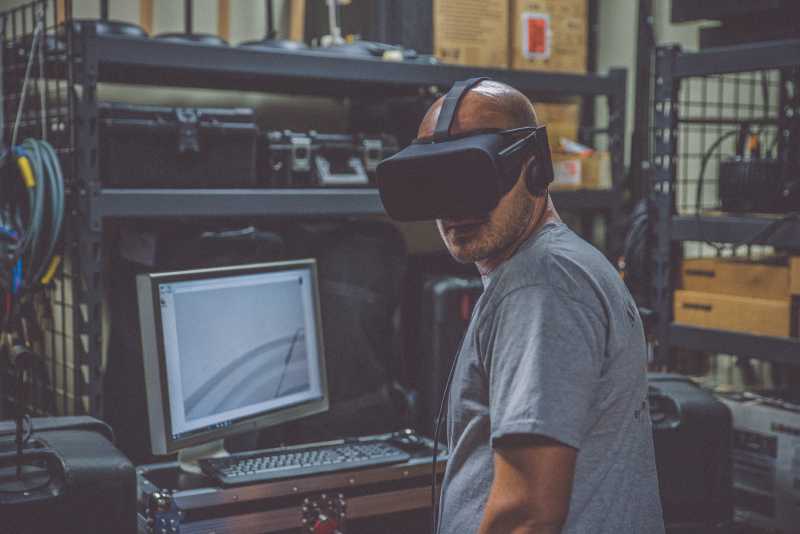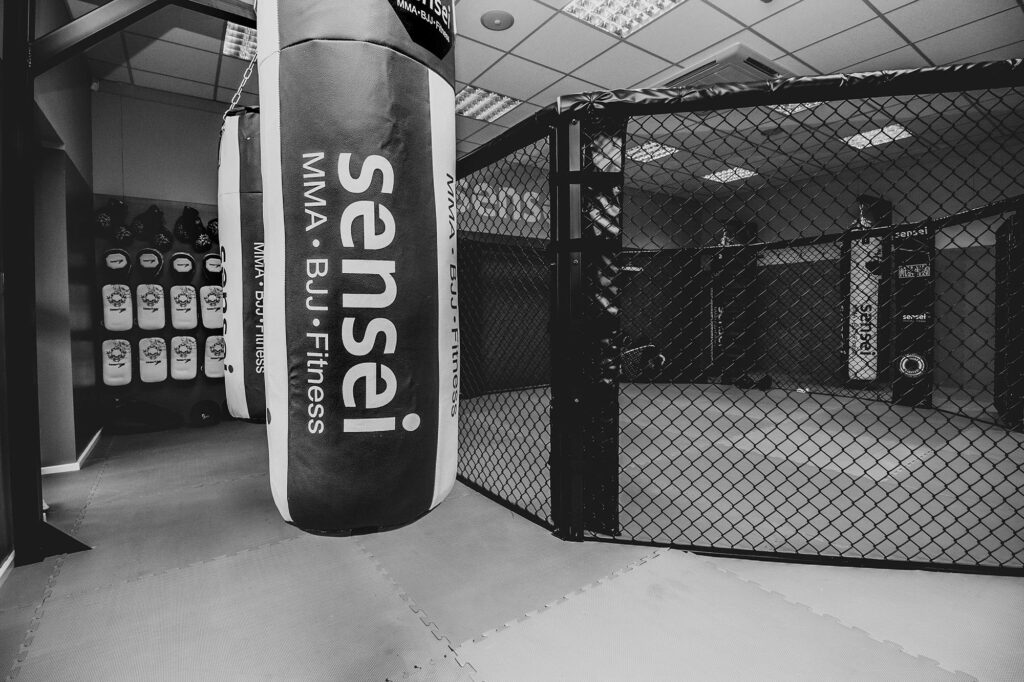Businesses are already reaping the benefits of extended reality (XR) technology as part of their training programmes. Across a range of sectors and contexts‚ the increasing affordability of immersive technology is driving more businesses to incorporate virtual reality (VR) and augmented reality (AR) elements in their staff training.
According to a recent poll by Brandon Hall Group‚ 45 percent of businesses in high-consequence industries‚ such as manufacturing‚ aerospace and healthcare view VR as critical to their business goals within the next 24 months.
Unsurprising when study after study has demonstrated the benefits of training within an immersive context‚ with improvements in knowledge retention‚ lower costs and reduced risk all touted as benefits.
We’re not quite at the level of Neo’s “I know kung-fu” in The Matrix yet‚ but plugging in to a virtual world definitely has its benefits.
A 2017 experiment by Google found that participants who received barista training in VR got up to speed much quicker and made less mistakes than those who received real-life training. More “I know a little more about making an espresso quicker than I would’ve done through traditional training methods” than “I know kung-fu”. At least for the time-being.
Immersive technologies pose learning benefits for theoretical topics too. In 2016‚ a Chinese study involving 40 test subjects found that recall and retention of astrophysical theory was significantly improved when abstract concepts were presented in three-dimensional form using VR.
In another study by Boeing and Iowa State University‚ test subjects using AR to assemble wing parts saw a 90% improvement in first time quality compared to participants using a desktop computer and PDF files.
There are plenty of other studies that have reached the same conclusions.
XR training is here to stay and is set to become a core part of training programmes across a vast array of industries in the coming years. But what about businesses that are already using the tech to get their staff up to speed?
Here are five first movers that are leading the way and reaping the benefits of immersive training.
Walmart
![[object Object] [object Object]](http://images.ctfassets.net/o6514hijae09/619pmR918idl9L7wsLccR1/19cff4ac0537a83934f12245aa55cb75/Walmart.jpg)
Photo by Mike Mozart on Flickr
Ever wondered what it would be like to work a shift in the midst of Black Friday madness? No? Well spare a thought for workers at retailers such as Walmart who have no choice but to weather the carnage.
We’ve all gawped in disbelief at the chaotic scenes of consumerist hordes grappling for half-price 4K TVs and cut-price kettles that have become the norm every November. For retailers‚ slashing prices and waiting for the ensuing press coverage is easy enough‚ but training frontline staff to deal with the yearly crush is a different matter entirely.
Working in conjunction with immersive training developers STRIVR‚ Walmart has implemented VR elements into its employee training programme to provide a more involved experience that mimics a real-world store.
Utilising 360 degree video‚ participants at the Walmart Academy training programme are transported into a real store and exposed to all the environmental factors that they would experience in real life.
According to STRIVR‚ 70 percent of employees who took part in the VR training programme performed better on their exams than those who took part in the standard training while satisfaction levels have also been 30% higher amongst the immersive group.
VW
![[object Object] [object Object]](http://images.ctfassets.net/o6514hijae09/6I5otGVVvdWAhgE1U1xSAv/6319e4aabd9fe965f424b8c910de91c3/VW.jpg)
Photo by 史莱克 on Flickr
Multinational car manufacturer Volkswagen became one of the first car manufacturers in the world to roll out its own VR platform for training and collaboration in 2017.
Developed with Munich-based Innoactive‚ the Volkswagen Digital Reality Hub supports training‚ workshops and collaborative work using HTC Vive headsets. The potential for employees in one office to exchange best practice ideas with colleagues in another part of the world in an immersive environment is just one of the transformative uses of the technology.
The car firm’s VR platform is one of the most high-profile investments yet in immersive technology by a big name brand and its success will be watched closely by other major companies looking to adopt the tech themselves.
Encompassing 30 training simulations‚ the platform is set to train 10‚000 members of staff across VW’s operations in its first year in areas including logistics and car production. The German multinational has signalled that VR will form a central part of its knowledge sharing and training across its network of brands‚ including Audi‚ Seat and Skoda.
Honeygrow
![[object Object] [object Object]](http://images.ctfassets.net/o6514hijae09/6KPhvh9Zj7EpVbZznPMYHV/3fc868492ff2ee8cab567ecbd38e8ef9/greenveg.jpeg)
VR can’t simulate the intoxicating aromas of your common restaurant kitchen (yet!) or the sweaty tension of a head chef berating your sluggish service during the lunchtime rush (again‚ yet!).
It can‚ however‚ provide an engaging alternative to tedious Powerpoint presentations and unloved employee handbooks.
At healthy food chain Honeygrow‚ founder Justin Rosenberg‚ inspired by the New York Times VR drive which saw over a million subscribers of the newspaper provided with a free Google Cardboard in 2015‚ set about incorporating VR into their training programme.
Utilising 360 degree video‚ new Honeygrow employees are greeted by a virtual representation of Justin when they don their VR headsets. What follows is a tour throughout the different functions of a typical restaurant with trainees given demonstrations of best practice and typical job roles.
An interactive 3D game also forms part of the training app‚ using cartoon animals and sounds to test users on proper food storage‚ aping a similar gamification approach by KFC.
As anyone who has been forced to complete compliance training as part of their job role will attest‚ garnering enthusiasm for company training is an exceedingly difficult thing to do. Employees scarred by tedious elearning modules and corny training videos are inherently averse to corporate training programmes.
With immersive technologies this problem is eradicated. VR and AR training modules are significantly more engaging than traditional methods and can motivate staff to get compulsory training completed much quicker‚ saving money and minimising the possibility of mistakes.
This is a fact borne out by Honeygrow’s own engagement statistics where‚ within weeks of the fast-casual chain rolling out its VR training‚ the number of staff certified on company culture had jumped from 50 to 77 percent.
Co-op
![[object Object] [object Object]](http://images.ctfassets.net/o6514hijae09/xmTeSqU9Kxe8oHgoTjyGp/1b8ecb41d06428ee14df05f06642d9e6/coop.jpg)
Photo by TaleTreader / CC BY
UK grocery chain Co-op has followed in the footsteps of US giant Walmart by introducing immersive elements into their colleague training programme. Utilising an app developed with Manchester-based Clicks and Links‚ the retailer’s training includes virtual store walkthroughs utilising 360 degree videos‚ quizzes and virtual trainers.
Paired with Google Cardboard VR headsets‚ new employees are able to take training home with them to re-enforce what they’ve learnt or complete modules in their own time. The inherent appeal of immersive technology shouldn’t be underestimated when it comes to driving engagement and employee buy-in. Sending employees home with an experiential app rather than a tedious questionnaire or staid elearning module is more likely to drive engagement‚ something which Co-op have tapped into.
As part of the training app‚ new starters are greeted by a virtual colleague who guides them through a typical Co-op store giving participants the chance to look around as they move. The retailer believes that the natural inclination for users to look around the virtual video will subsequently translate into the real word‚ with Co-op staff primed to spot issues in real-world stores.
The retailer has described VR training as ‘the next best thing’ to the real-world experience of working in a store and ensures staff hit the ground running as soon as they start working.
CAE Healthcare
![[object Object] [object Object]](http://images.ctfassets.net/o6514hijae09/3iaXMwLYzAG7MKYFD6CczA/fd2a37817efb9ec63d358ac08d94c742/CAEHC_manufacturing_plant_1_LR.jpg)
Photo by CAE Healthcare
CAE Healthcare are a little different to the other organisations on this list. Rather than introducing VR training as part of their business they have developed the underlying technology for use in medical contexts. And their inclusion is entirely warranted by the following gif:
![[object Object] [object Object]](http://images.ctfassets.net/o6514hijae09/1kAtJth9XLt4lz02119fuY/03ddbb01119c7a85e996a04bd2c51afb/cae_healthcare.gif)
Yes‚ that is a manikin giving birth to another manikin delivered by Microsoft Hololens-sporting midwives. The thousand-yard‚ expressionless stare of the dummy woman might be creepy‚ but the combination of real-life dummies with top-of-the-range MR technology poses some mind boggling benefits for the healthcare industry.
Imagine medical students being provided with an interactive reproduction of the digestive system that charts the movement of food through the body or respiratory specialists monitoring the impact over time of smoking on someone’s lungs.
If we’re talking about high-risk industries that can benefit from risk-free‚ immersive training then the medical sector is the most important of all. And CAE Healthcare’s LucinaAR platform is targeting one of the most fraught and high-stakes medical procedures around.
Their product pairs dummy models with real-time 3D holographic representations of mother and child physiology‚ providing insight into exactly what is happening at each stage of the delivery.
Trainees can also walk around and inspect the dummy to get a better understanding of a pregnant woman’s anatomy all through the Hololens interface.
With 26.4 women per 100‚000 live births dying in the US‚ maternal mortality is an ever-present risk during childbirth. By providing more experiential training‚ AR technology like CAE Healthcare’s has the potential to equip trainees with the skills to react more effectively when complications arise and leave them more confident when facing tricky procedures.
Scratching the surface
As VR‚ AR and MR continue to hurtle towards the ‘Plateau of Productivity’ on Gartner’s annual Hype Cycle there’ll be plenty more exciting uses of immersive technology emerging in the coming years.
The use cases covered here are really only scratching the surface in terms of the true potential of XR technology in training contexts. What’s really interesting is that‚ despite approaches such as 360 degree video providing a relatively straightforward implementation of the tech‚ businesses are still reaping the benefits of immersive training.
We’re still someway away from widespread adoption of full-blown VR simulations such as the platform being pioneered by VW‚ but large enterprise and corporates would be mad not to be looking at the German car manufacturer for inspiration.
AR‚ too‚ has come on leaps and bounds in recent years. Driven by the Microsoft Hololens and Google Glass’s so-called ‘second act’‚ we’re seeing a whole range of innovative applications of the technology from aviation and manufacturing to logistics and healthcare.
XR training is having more than just a moment‚ it’s here to stay.





